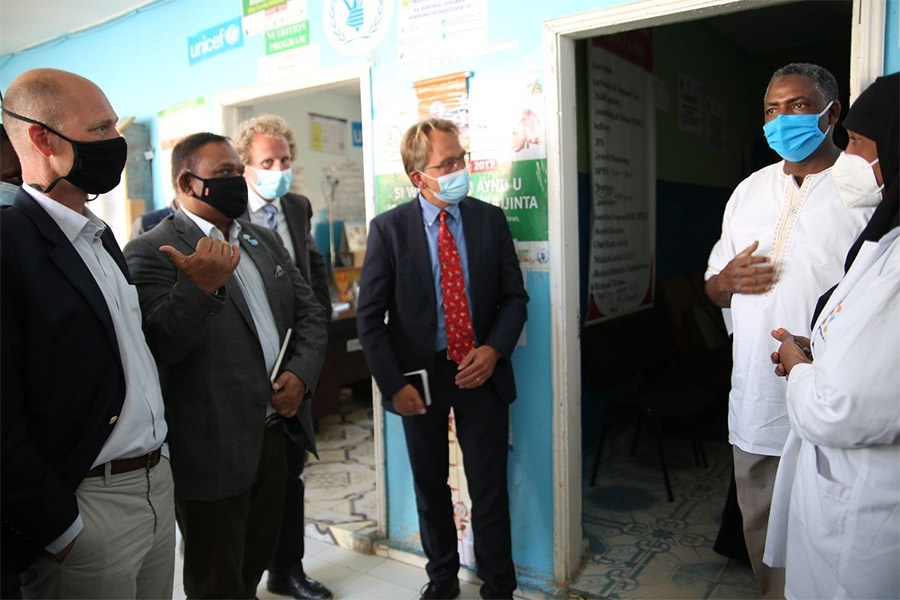 Swedish Ambassador, UNFPA, UNICEF and WHO joint UHC High-Level mission to Hargeisa and Garowe
Swedish Ambassador, UNFPA, UNICEF and WHO joint UHC High-Level mission to Hargeisa and Garowe
1 February 2021 - Nearly 30 years of conflict and instability have heavily marked Somalia’s recent history. Some gains are being made, but the country still faces many challenges ahead.
Somalia’s health indicators, especially for women and children rank among the lowest in the world.
Recently published statistics show that maternal mortality and deaths of children under five remain high, while female genital mutilation is still widespread. Prevalence of early marriage also contributes to high fertility rates. These issues are further exacerbated by cramped conditions in the country’s over 2 000 sites for internally displaced persons.
An innovative partnership between WHO, Sweden and Somalia’s Ministry for Health was launched to address these and other persistent health problems. The partnership, which is borne out of a policy dialogue and a high-level mission by Sweden to Somalia in 2020, aims to create an independent Somali Public Health authority and to modernize the country’s health information management system.
This collaboration between Sweden and WHO in Somalia was inspired by WHO’s 2019-2013 General Programme of Work to deliver impact at the country level.


